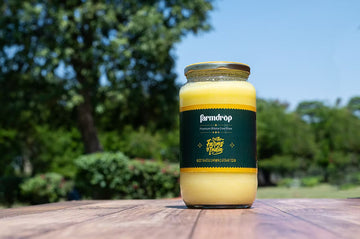India is home to several Dairy companies. Which makes the different breeds of cows in the country a key factor in the production of dairy products. The most renowned cow breeds in India for dairy production are the Sahiwal and Gir cow breeds.
Particularly when it comes to dairy products, there has been an increase in interest in recent years in the methods used to source and produce our food. The argument over cows that are injected vs those who are naturally bred has drawn a lot of attention. Naturally bred cows are replacing injected cows, which have long been the standard practice and are frequently raised in CAFOs, as a healthier and more environmentally friendly option. The multiple advantages of choosing Naturally bred cows for both customers and the environment are covered in this article.
Improved Nutritional Profile:
Compared to cows who are given injections, those that are bred naturally have better nutritional advantages. Omega-3 fatty acids, vitamin E, and conjugated linoleic acid (CLA) are among the necessary elements that are present in higher concentrations in naturally bred cows. The heart needs omega-3 fatty acids, and vitamin E is a powerful antioxidant. CLA has been linked to several health advantages, including less inflammatory response and enhanced body composition. Customers can choose a more nutrient-dense protein source by choosing naturally bred cows.
Lower Levels of Hormones and Antibiotics:
The use of growth hormones and antibiotics on injected cows is one of the key issues. In contrast, naturally bred cows are raised in a more natural setting without the use of growth hormones. According to studies, injected cows may still have trace amounts of these hormones, which have been associated with health problems in people. A further factor in the emergence of antibiotic-resistant bacteria is the overuse of antibiotics in traditional farming methods. Customers can limit their exposure to these potentially hazardous compounds by buying naturally bred cow products.
Environmentally Sustainable:
Contrary to injected cows, natural farming practices have several environmental benefits. First off, as opposed to being bred in cramped feedlots, naturally bred cows are normally kept on pasture. This promotes animal well-being and enables a more natural and humane living environment while easing stress. Additionally, since naturally bred cows eat on a variety of pastures rather than only monoculture-feed crops, they help maintain healthy soil and biodiversity.
Compared to the industrialized production methods associated with injected cows, natural farming uses less fossil fuel. Transportation of feed and reliance on sizable feedlots both increase greenhouse gas emissions. In contrast, cows bred naturally have less carbon impact because they graze on pastures. Consumers can contribute to the advancement of a more environmentally friendly and sustainable food system by supporting natural farming practices.




